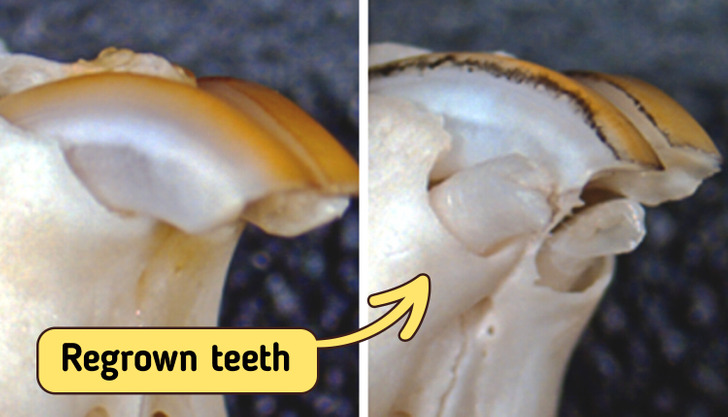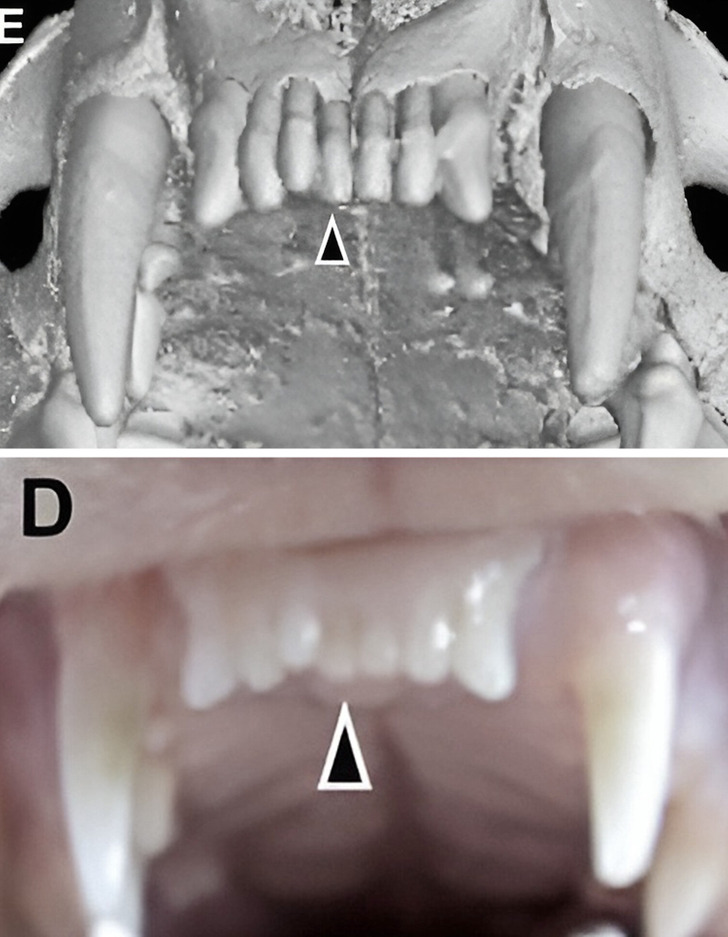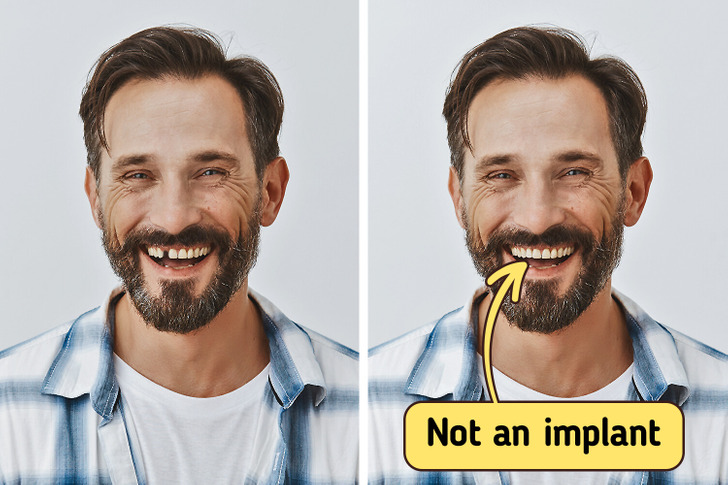The tooth fairy is a welcome guest for any child who has lost a tooth. Not only will the fairy leave a small gift under the child’s pillow, but they be assured of a replacement tooth in a few months. Unfortunately, the scenario is quite different for adults grappling with a loss of teeth. Luckily, there may be some hope thanks to a new study performed by scientists at Kyoto University and the University of Fukui.
A dental breakthrough
While the typical adult mouth houses 32 teeth, approximately 1% of the population exhibits variations of them, either possessing more or fewer teeth due to congenital conditions. Researchers have delved into the genetic factors behind cases of excessive teeth, seeking valuable insights into the potential regeneration of teeth in adults. This study is the first to show that monoclonal antibodies can help regrow teeth. It suggests a new way to treat a dental problem that currently requires implants and other artificial solutions.
A bit of science
The research team disclosed that an antibody targeting a specific gene, known as uterine sensitization-associated gene-1 (USAG-1), can induce tooth development in mice affected by tooth agenesis, a congenital condition. The findings were published in the journal, Science Advances.
As per Katsu Takahashi, a senior lecturer at the Kyoto University Graduate School of Medicine and one of the principal contributors to the study, the essential molecules crucial for the development of teeth have already been pinpointed. “The morphogenesis of individual teeth depends on the interactions of several molecules including BMP, or bone morphogenetic protein, and Wnt signaling,” says Takahashi.

On April 13, 2021, the University of Kyoto posted its first pic of newly-grown teeth in mice.
BMP and Wnt are involved in more than just tooth development; they affect the growth of organs and tissues early in the body’s development. Because drugs affecting them directly might have broad side effects, scientists are cautious. To find a potentially safer method, researchers focused on the gene USAG-1, thinking that aiming at factors countering BMP and Wnt specifically in tooth development could be more precise.
“We knew that suppressing USAG-1 benefits tooth growth. What we did not know was whether it would be enough,” added Takahashi.
The first results
Scientists looked at how different monoclonal antibodies affect USAG-1. Monoclonal antibodies are often used to treat things like cancer and arthritis and for making vaccines. Tests with this antibody showed that BMP signaling is crucial for deciding the number of teeth in mice. Also, just one treatment was enough to grow a whole tooth. Further tests confirmed these positive results in ferrets too.
“Ferrets are diphyodont animals with similar dental patterns to humans. Our next plan is to test the antibodies on other animals, such as pigs and dogs,” explained Takahashi.

Fully regrown frontal teeth in ferrets
The next steps

Now, scientists are going to test the drug on healthy adults. If that goes well, the team plans to try it on kids aged 2 to 6 with a rare tooth problem called anodontia, a genetic disorder defined as the absence of all teeth. These kids will get one shot of the drug to see if it makes their teeth grow. If everything works out, the medicine might be approved by 2030.
Takahashi sees the new medicine as an additional choice for individuals who are missing some or all of their teeth.
“The idea of growing new teeth is every dentist’s dream,” Takahashi told the Japanese newspaper, The Mainichi in June this year. “I’ve been working on this since I was a graduate student. I was confident I’d be able to make it happen.”
So hopefully, by the year 2030, humans will get a chance to have their third generation of teeth grown and say goodbye to implants. Until then, make sure to keep your teeth strong and healthy — this article will help you with that.
Preview photo credit KyotoU_News / Twitter
My Husband Insisted I Get Pregnant the Day after Our Wedding — My Heart Dropped When I Discovered His Real Reason

As a child, my grandmother used to tell me that life can be full of surprises, not all of them pleasant.
“Remember the good times and don’t let the bad ones bring you down, Liz,” she’d say.
I suppose she wanted to prepare me for life’s bitter moments, but little did she know that the worst day of my life would alter my reality forever.
I’ll never forget the moment I discovered what my husband, Jake, was scheming behind my back. We met at my workplace and quickly became close friends.
We married after just six months of dating because we felt a deep connection—or so I thought.
The day after our lovely wedding, Jake brought up the idea of starting a family right away. “Liz, I think we should try for a baby immediately,” he said, sounding more urgent than I expected.
“Are you sure? We just got married,” I replied, trying to gauge his intentions.
“Yes, absolutely,” he insisted. “There’s no better time than now. It’s the perfect way to start our journey together.”
Despite his enthusiastic words, something about his tone made me uneasy.
Confused yet flattered by his eagerness, I smiled and nodded, unaware of his true motives.
One day, while tidying up the living room, I noticed Jake’s laptop chiming with a notification. He was in the shower, so I glanced at the screen.
I wasn’t snooping, but I couldn’t ignore the message preview that read, “Is she pregnant yet?”
It was from his ex-girlfriend, Claire.
My stomach churned as I read their chilling conversation.
“Remember our agreement, Jake. You need to impregnate her within a year. Otherwise, you won’t secure your inheritance,” Claire wrote.
“Don’t worry, I’m on it. Everything is going according to plan,” Jake replied.
Tears streamed down my cheeks as I processed their conversation. They discussed a cold, calculated strategy where Jake would marry me to ensure an heir for a substantial inheritance from a distant relative.
To secure the inheritance, Jake needed to father a child within a year of our wedding. Moreover, he was using me because his ex-girlfriend was infertile.
After securing his share, Jake planned to divorce me and be with Claire.
“How could you?” I whispered.
Shaken by the revelation, I knew I couldn’t confront Jake without solid evidence. So, over the next few days, I acted normally while discreetly gathering proof.
Whenever Jake left his laptop unattended, I copied the emails onto a USB drive. I also started recording his phone conversations with Claire whenever I was out.
One evening, pretending to leave the house, I hid in the garage and recorded Jake confirming their scheme on the phone.
“I just need a bit more time, Claire. Trust me, everything’s on track,” he said urgently.
With the evidence secured, I consulted a lawyer.
“This is serious, Elizabeth. We need to handle this carefully to protect you legally and financially,” he advised.
We planned every step meticulously, preparing for the inevitable confrontation.
Jake’s family hosted an annual gathering a few weeks later, providing the perfect opportunity to reveal his truth.
It was attended by all his distant relatives, including those whose inheritance he coveted.
In the weeks leading up to the event, I pretended to be a loving wife eager to start a family with Jake. But inside, I felt anxious.
During the event, I stood up to make a toast after dinner.
“I want to thank everyone for welcoming me into this wonderful family,” I began. “And to my dear husband, who has taught me so much about trust and love, I have a special surprise!”
As all eyes turned to me, I switched on the projector. The damning emails between Jake and Claire flashed on the screen, followed by recordings of their phone conversations.
The room fell silent. Then, Jake’s grandmother stood up, her face flushed with anger.
“You are a disgrace,” she declared firmly. “You won’t receive a penny of anyone’s wealth!”
Claire, whom I had invited as a friend’s plus one, stood up, her face pale. She slapped Jake across the face.
“I never want to see you again!” she exclaimed before storming out.
As whispers filled the room, I looked at Jake, his face drained of color.
“And one last thing,” I added firmly. “I never intended to get pregnant so soon. I’ve been on birth control since learning the truth.”
That evening, Jake’s plan lay in ruins, leaving him with nothing. His deception also invalidated our prenup.
Meanwhile, I walked away with my integrity intact and a bright future ahead of me.
What would you have done?



Leave a Reply